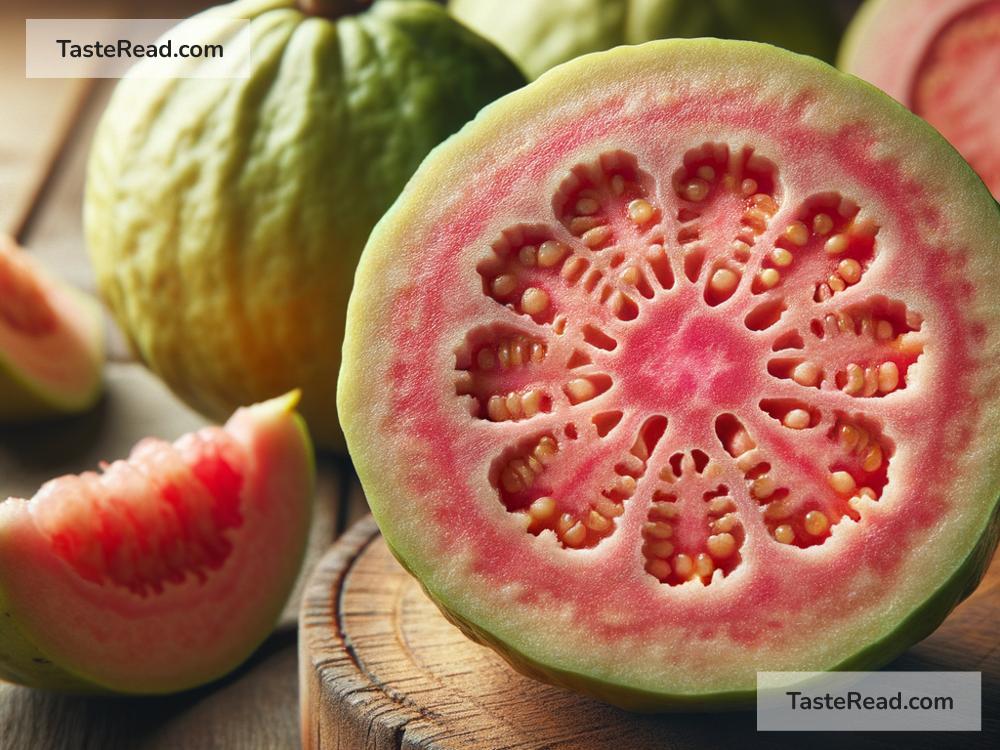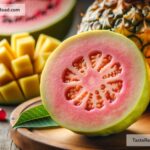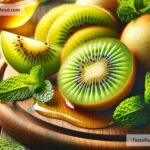Why Fruits Like Guava Have a Musky Undertone
Have you ever taken a bite of a guava and noticed its unique aroma? There’s something special about guava. Its smell is fruity yet has a musky undertone that makes it stand out from other fruits like apples or bananas. Some people love this distinct scent, while others may find it unusual. But have you ever wondered why guava has this musky quality? Let’s explore the reasons behind it in simple terms.
The Science Behind Fruit Aromas
To understand guava’s musky scent, we need to learn a little about how fruits get their aromas. Fruits are made up of various compounds, many of which contribute to their smell. These compounds are produced naturally by the plant as it ripens. When fruits ripen, they release chemicals into the air that our noses can pick up as scents.
For example, bananas smell sweet because they contain compounds like isoamyl acetate, which give them their characteristic aroma. Similarly, pineapples smell tropical because of compounds like ethyl butyrate and methyl hexanoate. Each fruit has a unique combination of these chemical compounds, which gives it a signature scent.
What Makes Guava Smell Musky?
Guava, however, is different. Its scent is not purely sweet or fruity—it has that musky undertone that makes it distinctive. This musky smell comes from a mix of volatile organic compounds (VOCs) present in the fruit. Volatile organic compounds are molecules that evaporate into the air readily, creating smells we can perceive.
One of the key compounds in guava is p-terpineol, which contributes to its floral, woody, and slightly musky scent. Another compound commonly found in guava is benzyl acetate, which is responsible for its fruity aroma. These compounds work together and create the balance of fruity and musky notes we associate with guava.
The Connection to Ripeness
The musky undertone in guava is often more pronounced as the fruit ripens. When a guava ripens, its chemical composition changes. More VOCs are produced, and the musky scents become stronger. The ripening process is nature’s way of attracting animals to eat the fruit and spread its seeds.
In the wild, guava relies on birds, mammals, and insects to pick up on its aroma. The musky scent acts as a signal that the fruit is ready for consumption. By spreading seeds, these animals help guava plants grow in new places.
Why Muskiness Matters
You might be wondering why guava—and some other fruits—develop a musky scent instead of sticking to purely sweet or fruity smells. The answer lies in diversity. In nature, having a distinctive smell helps guava stand out from the crowd. There are many fruits competing for attention, and guava’s musky undertone makes it unique. This distinct aroma ensures that guava attracts specific animals rather than blending in with other fruits.
Interestingly, musky scents are not entirely uncommon in nature. They can be found in perfumes, flowers, and even animals. For some people, guava’s musky undertone is alluring, while others might find it intense—this preference varies from person to person.
Other Fruits with Musky Undertones
Guava isn’t the only fruit with musky notes. Certain other fruits also share this characteristic, although it may be less pronounced. For example:
- Durian: Known as the “king of fruits” in Southeast Asia, durian has a strong and musky aroma that some people love while others dislike.
- Papaya: Papaya often has a mild musky scent, especially when it’s ripe.
- Mango: Though mangoes are mostly sweet and fruity, some varieties can have a slightly musky undertone.
If you’ve ever wondered why some fruits have these undertones, the answer usually lies in their complex mix of chemical compounds produced during ripening.
The Role of Culture in Enjoying Musky Fruits
It’s worth noting that how people perceive guava’s musky aroma can vary based on their personal preferences and cultural experiences. In countries where guava is a common fruit—like India, Mexico, and the Philippines—people are often accustomed to its smell and enjoy its muskiness. For those who might be unfamiliar with guava, its aroma may take some time to appreciate.
Interestingly, guava has become a popular flavor in juices, candies, and desserts around the world. Even if its musky scent isn’t everyone’s favorite, its unique taste and health benefits make it a widely loved fruit.
Conclusion
Guava’s musky undertone is part of what makes it special. This unique aroma comes from the natural compounds produced during ripening, like p-terpineol and benzyl acetate. It’s a clever way for the guava plant to attract animals and ensure its seeds are spread far and wide. While some people might find the musky scent unusual, it’s all part of the fascinating story of how nature creates variety in fruits.
The next time you bite into a guava or smell one at the market, take a moment to appreciate its distinctive aroma. It’s a reminder of how diverse and wonderful nature can be! Whether you love guava’s musk or prefer other fruity scents, this unique quality certainly makes guava a fruit to remember.


